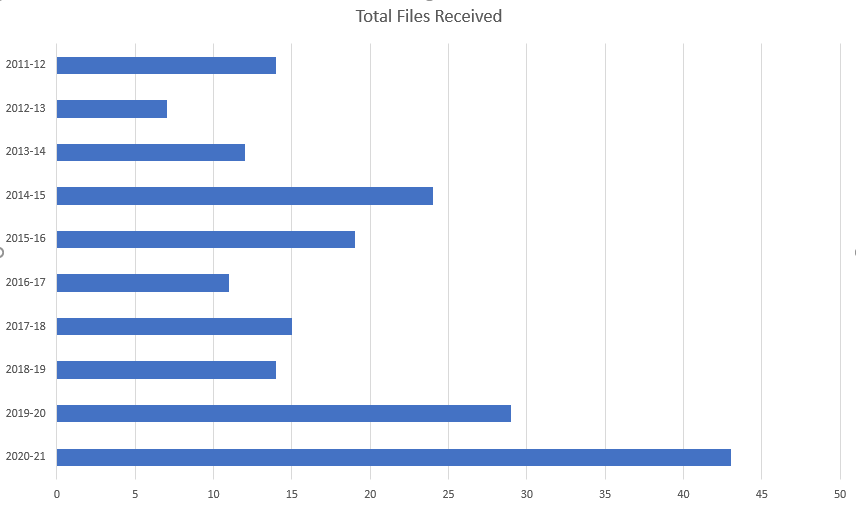Can the Attorney General intervene with the Ministry of Education over Wilful Blindness??
Legal term – Wilful Blindness: “The Supreme Court of Canada held that wilful blindness is best described as “deliberate ignorance” and emphasized that it should be treated as a state of mind that is equivalent to actual knowledge.” & “Wilful blindness…involves no departure from the subjective inquiry into the accused’s state of mind which must be undertaken to establish an aider or abettor’s knowledge.” (Verdon-Jones S, 2020, p.98)
- Deliberate Ignorance of Case Law Regarding Counselling Notes
I emailed the Ministry of Education and their Legislation department on October 27th, 2021 and informed them of a gap in their legislation connected to counselling notes, and an order from the OIPC (Office of Information Privacy Commissioner) and the upheld decision of such an order by the BC Supreme Court.
I have blogged about it.
The Ministry of Education ignored my multiple emails and my attempts at communication. I filed an Ombudsperson complaint in early December, which forced them to communicate with me and on March 7th, 2022 we finally had a conversation. They acknowledged the gap in the system. They have been aware for 7 months and so far…I haven’t seen or heard of any changes. The Board of Education has also been aware since October 26th, 2021 and I have not seen or know about any attempts at updating policy to reflect case law, which the Ministry of Education states is their responsibility. They are also ignoring my emails regarding this topic.
- Deliberate Ignorance of Human Rights Violations across the Province
Due to a Freedom of Information request and a phone call with the finance department it was revealed that the Ministry of Education isn’t tracking human rights violation financial data that are occurring across the province. The Freedom of Information on the financial implications of such complaints had to come from the Ministry of Finance. Talk about deliberate ignorance. I have also written a blog about this topic.
- Deliberate Ignorance in the Professional Conduct Unit department. (Formerly – Teacher’s Regulation Branch)
I have emailed the Ministry of Education, the Executive Director of the TRB and the Commissioner. I have raised serious issues regarding their process and their legislation and the connection with Ombudsperson. They refuse to respond or discuss these issues. I am not telling them their welcome mat is crooked, I am telling them their house is on fire. They undemocratically responded by closing the door. There will be an upcoming blog about this. It’s been over a year and processes are still occurring with Ombudsperson regarding these issues. More to come about this later. Last year I blogged about a call for fair process. Since then, the story gets deeper. For those who need some inside tips on the process, here you go.
- Deliberate Ignorance of Educational Malpractice
When I presented the Ministry of Education with a document containing evidence of my allegations of educational malpractice, they referred me to Ombudsperson and the Teacher’s Regulation Branch. Both due to systemic and legislative reasons were dead ends. When I went back to them, they apologized and said there was nothing they could do. It turns out there are no avenues for accountability in the education system regarding educational malpractice. Nothing.
What are we supposed to do when we have a government body refusing to uphold case law, deliberating ignoring human rights violations, closing the door of any conversation related to systemic oppression, and having no accountability system for allegations of malpractice?
Anyone have any ideas?????
I’d love to hear them.
Seriously.
*****************
References
Verdon-Jones, Simon N. (2020). Criminal law in Canada: Cases, questions, and the code. (7th edition). Top Hat.

